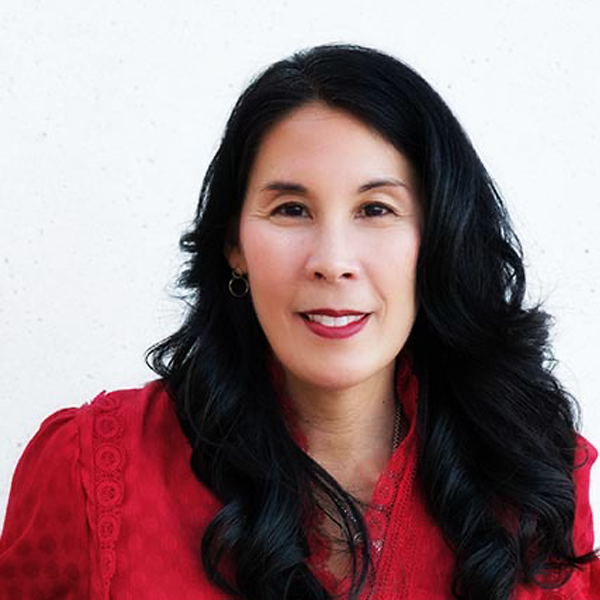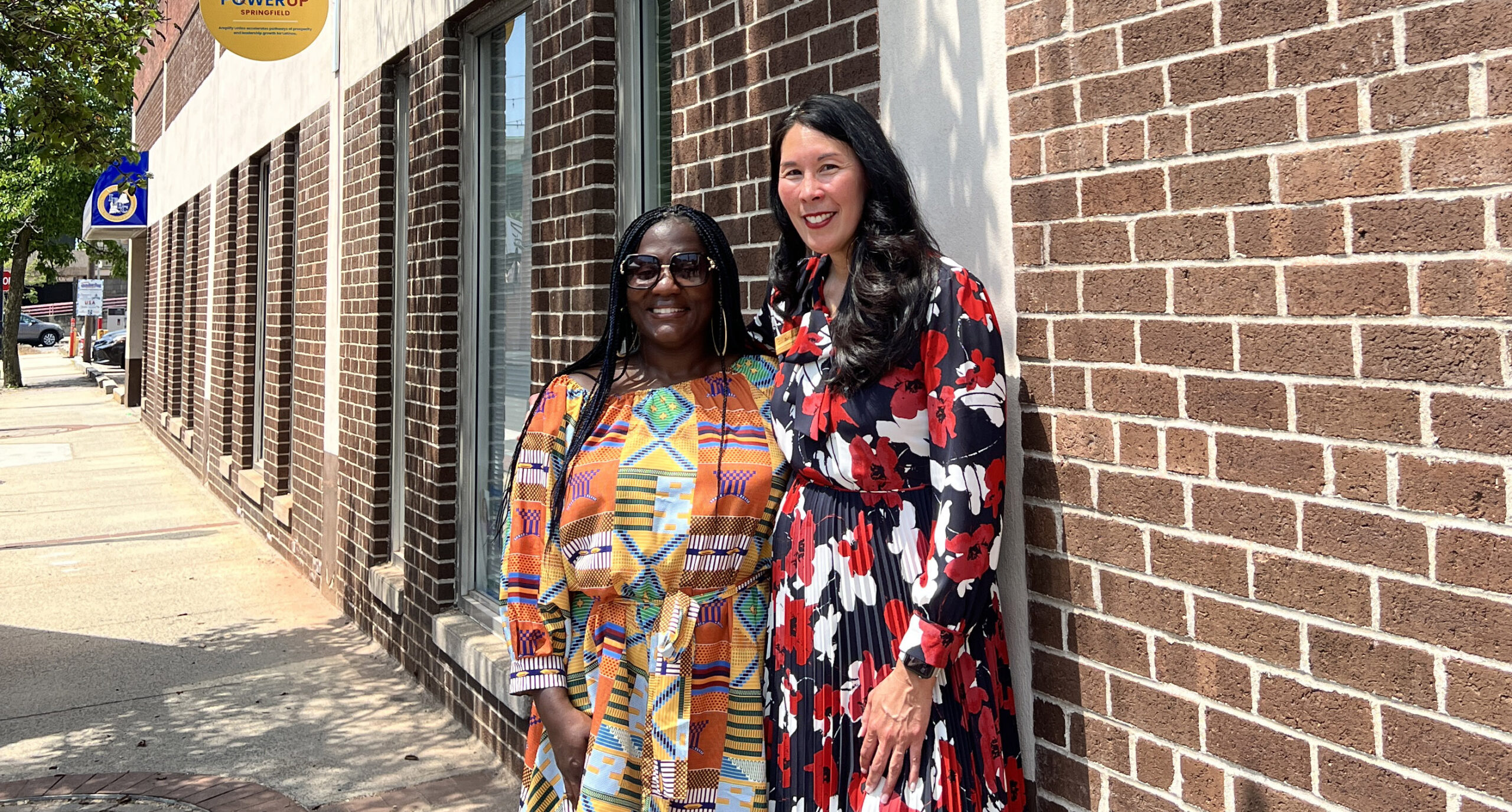The Coalition for an Equitable Economy (CEE) is building an equitable and inclusive small business ecosystem in Massachusetts through technical assistance and advocacy to achieve racial and ethnic parity in business ownership. NFF’s technical assistance and financial management resources supported CEE through its transition from a coalition of affiliated organizations to a 501(c)(3) nonprofit.
Tracye Whitfield is a busy woman. She’s a City Councilor for Springfield, Massachusetts, co-owner of a property development company, mother of two, grandmother of one, and Executive Director of the Coalition for an Equitable Economy (CEE). In this last role, she recently celebrated a milestone accomplishment: achieving nonprofit status for the Massachusetts coalition of small business-supporting organizations.
“The notification letter arrived via email, and I was in my kitchen making a cup of coffee when I saw it,” recounts Tracye. “I was completely caught off guard but instantly filled with excitement!”
CEE was born in the tumult of the COVID-19 pandemic, helping women and small business owners of color access forgivable Paycheck Protection Program (PPP) loans. Today it is a coalition of business support organizations, commercial banks, CDFIs, consultants, foundations, and nonprofits providing technical assistance to small business owners and entrepreneurs to help them grow and succeed. Along the way, Nonprofit Finance Fund (NFF) helped CEE navigate the financial and structural necessities to incorporate as a 501(c)(3) nonprofit organization and continue its technical assistance and advocacy work for the long haul.
“Working with Tracye and the CEE team has been a pleasure and a privilege,” remarks Sarah Shampnois, Director, Consulting, Nonprofit Finance Fund. “Tracye has a clear vision of where she wants to take the organization, and NFF has done our best to help her plan for the realization of this vision and communicate her financial needs to external stakeholders. The continued success of CEE is important not only to the small business owners serviced by CEE members, but to the overall economy here in the Commonwealth.”

Small Business Realities
Small businesses are at the heart of the American economy, comprising over 99% of firms and 46% of private sector employees.1 Defined as firms with fewer than 500 employees, small businesses are crucial to building and supporting strong local economies, providing jobs and tax revenue. But small businesses require money, knowledge, and support networks to get off the ground.
Tracye knows from experience starting her own business that capital can be a major barrier to entry. “I didn’t have rich family members. I didn’t have the same access to resources, because it just hasn’t been the history of black people in America,” Tracye says. “I think that a lot of small businesses owned by Black, Latino, Indigenous and other underserved populations face the same barriers that I faced personally.”
A 2024 survey of Massachusetts small businesses conducted by MassINC Polling Group on behalf of CEE supports Tracye’s observations, finding that businesses owned by entrepreneurs of color are smaller, are more likely to report challenges gaining access to capital that can help them grow and thrive,2 are far more likely to have their applications for financing rejected,3 and report fewer connections to business support.4
The Racial Wealth Gap
One root cause of these challenges is the racial wealth gap – the difference between the wealth of Black families and white families in the US. The median white household has $240,120 more wealth than the median Black household. The gap was carved out through centuries of discrimination, including stolen land and property, redlining that prevented Black Americans from buying homes in desirable areas and depressed the value of homes elsewhere, and segregation that limits equal access to housing, jobs, and education.5 Lower personal and family wealth means less access to money for investments from friends and family, as well as less collateral to secure loans. The result is more rejections and smaller loans for people of color overall than for white business owners, and more reliance on alternate financing sources – like credit cards – that bear high interest rates, so more income goes to paying off debt rather than investing in enterprise growth.
“The systemic structures in lending and capital capacity are very difficult to face when you have to survive on a credit card,” Tracye says. “As a small business owner, it makes your credit score drop and now you can’t apply for the funding you need to even make payroll.”
Despite all these challenges, building a business remains one of the most promising paths to building generational wealth. Self-employed workers earn far more than wage workers, and small businesses increase local employment opportunities, contributing to a stronger local economy.
Responding to Challenges
CEE is meeting these challenges and opportunities head-on as it works toward the goal of achieving racial and ethnic parity in small business ownership in the Bay State by the end of 2030.
The Coalition was founded in March 2020 as the Massachusetts Equitable PPP Access Initiative to support small business needs as the COVID-19 pandemic was shuttering businesses across the state.6 Among the founders was Betty Francisco, CEO of Boston Impact Initiative and cofounder of Amplify Latinx. “We had a set of players that really focused on addressing a crisis in the moment,” Betty explains. “We built deep trust with each other. That’s what eventually led to the articulation of us being a coalition.”
The group started off providing technical assistance to small businesses seeking forgivable federal Payment Protection Program loans, especially underbanked businesses owned by women and people of color. In the first round of PPP lending, they helped 682 people of color-owned small businesses apply for over $9 million in loans.
“When you advocate together, you have more power.”

Seeing in their work that the toll of the pandemic and the scale of governmental response was unevenly distributed, the Initiative took on a policy role on behalf of people of color-owned small businesses, advocating at the state level for more resources for underrepresented businesses. “When you advocate together, you have more power,” Betty says. When Massachusetts Governor Charlie Baker announced the $50 million COVID-19 Small Business Grant Program, the administration partnered with Equitable PPP Access Initiative organizations to support applications from small businesses owned by people of color.
Becoming a Nonprofit
As the Initiative’s success and influence grew, and as the pandemic became a chronic reality, discussions arose among the steering committee to formally operate as a coalition.
Tracye was brought on in 2022 to oversee the work, unite the collective efforts of CEE members, and bring in more funding for capital access, business support, and advocacy. The Initiative was renamed the Coalition for an Equitable Economy, and Tracye got to work setting up CEE to operate more formally and designing a multi-year strategic plan. As part of its strategic growth, CEE decided to incorporate as a nonprofit.
“When Tracye was hired, I said to her, ‘This is a startup,’” Betty recounts. “It starts with the basics: having a strong financial foundation, figuring out the revenue model, finding technology and services for things like bookkeeping.” Betty recalls doing all these things when she co-founded the nonprofit Amplify Latinx: filing for nonprofit status with the IRS, setting up payroll, filing a sales tax application. “There are all these things that are really business operations focused. It’s not just being an advocate for your cause. It’s also running the organization.” Along with other board members, Betty taps into her experience and connections to help Tracye navigate challenges.
CEE also engaged NFF to navigate the nonprofit application process: pulling together financial statements, establishing governance best practices and a board structure with a healthy mix of perspectives and experiences, creating a three-year budget, and envisioning the Coalition’s mission, vision, and goals. NFF also provided tools and templates for the organization to maintain financial resilience into the future. “They want us to win. They want us to be successful. And they did everything to ensure that we are,” Tracye said.
“They want us to win. They want us to be successful. And they did everything to ensure that we are.”
“It was a lot of blood, sweat, and tears,” Tracye recalls. “I had previously worked for the city of Springfield in the finance department, so I was familiar with that. But NFF was so invaluable with helping me think through every detail, with cash flow statements and other accounting documents we needed.”
CEE used pro bono legal support from the law firm WilmerHale to help pull together the legal documents to incorporate as a nonprofit, employed a fractional accounting service, and submitted their application to the IRS. Then they waited.
The Work Continues
CEE’s 501(c)(3) nonprofit status was formalized in October 2024, beginning the next chapter of its work. “CEE’s nonprofit tax status will enable us to expand our impact by increasing funding opportunities and building partnerships that directly support organizations working with BIPOC-owned small businesses in Massachusetts,” Tracye says. “This status allows us to channel more resources into empowering these communities and driving equitable economic growth.
“Next, we’re focused on scaling our programs, deepening collaborations with local partners, and creating innovative initiatives that foster sustainable business support and development for BIPOC entrepreneurs. The future holds great promise, and I’m excited for what’s ahead for both CEE and the communities we serve.”
Supporting small businesses can create a virtuous cycle for communities, Tracye observes. “It’s about understanding how we all fit into this ecosystem and how we can all support each other to be successful, to grow and scale. Because when we help small businesses, it’s helping the tax revenue, right? It’s how people get jobs. It’s lowering the unemployment rate. It’s helping with workforce, and getting folks back into colleges to improve their education. And that can only improve our economy overall.”
“When we help small businesses, it’s helping the tax revenue, right? It’s how people get jobs. It’s lowering the unemployment rate. It’s helping with workforce, and getting folks back into colleges to improve their education. And that can only improve our economy overall.”
NFF’s Sarah Shampnois agrees: “Organizational collaborations and coalitions like CEE, working across geographies and sectors, will be increasingly more vital in building community wealth and well-being.”
Tracye looks forward to continuing her work with CEE to shape a more equitable small business ecosystem. “Everyone that is part of CEE wants to see small businesses throughout Massachusetts succeed,” Tracye says. “They want to close the wealth gap. They want everyone in Massachusetts to have what they need to live well and thrive.”
Notes
- Massachusetts mirrors the national numbers, with small businesses comprising 99.5% of firms and 44.7% of private sector employees. [Return to section]
- The survey found more than two-thirds of Hispanic and Black business leaders saw getting capital as a high priority over the next three years, versus about one-third of white business leaders. [Return to section]
- Black-owned businesses who applied for financing saw their applications rejected at a far higher rate than other groups: 42% versus 25% for white-owned businesses, 24% for Latino-owned businesses, and 27% for Asian-owned businesses, according to the survey. [Return to section]
- In the survey, Black business owners cited a lack of connections at double the rate of white business owners and nearly quadruple the rate of Latino business owners. [Return to section]
- In addition to historical systemic discrimination, more direct racism may also be a factor. Research has shown that business owners of color are denied loans at a higher rate due to discrimination and are asked to provide more information and offered less assistance. [Return to section]
- Nationally, 22% of small businesses closed between February and April 2020, with a staggering 41% of Black-owned and 32% of Latinx-owned small businesses shutting their doors. This was largely due to a lack of access to banking relationships and the staff and support needed to apply for a PPP loan. However, studies have also shown direct discrimination in PPP lending played some role. [Return to section]

